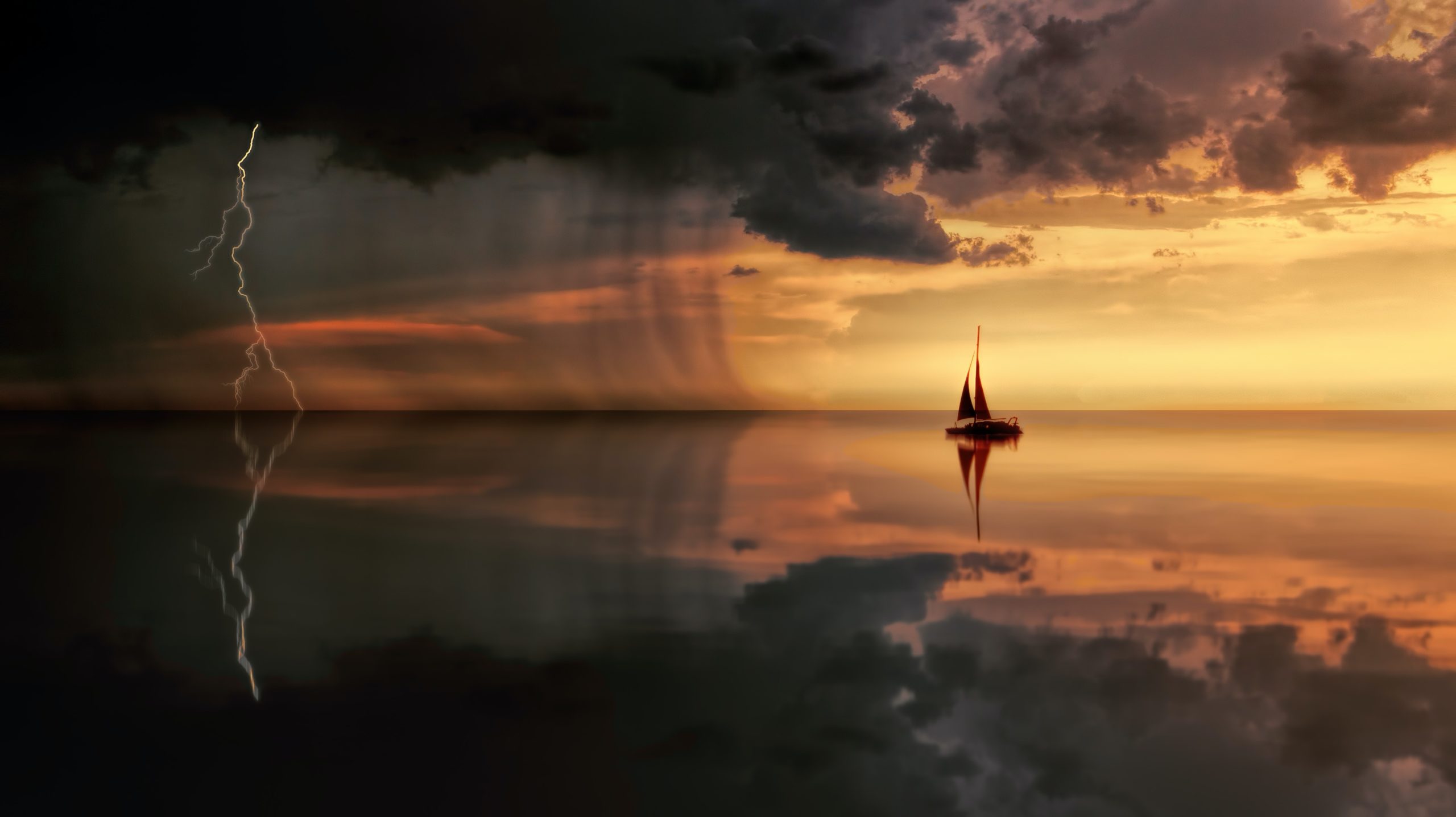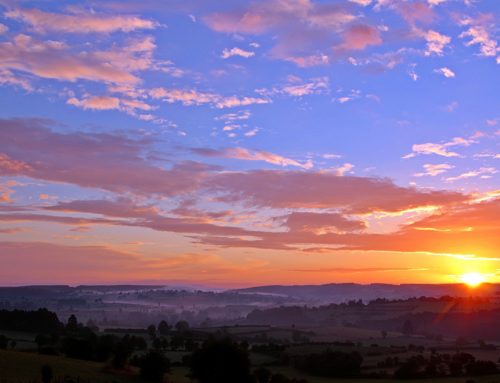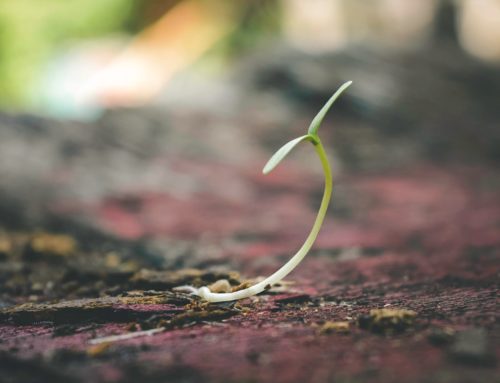Over the last couple of weeks as we have been restricted by the Lockdown measures to help combat the latest Covid outbreaks, it’s as though we have weathered a few storms, and have lashed everything down to keep it from being blown away. Some may be a bit tentative about opening up the doors and venturing out, while others I know are just dying to relax and engage with the world more freely. It’s appropriate that our Gospel reading this Sunday is about a storm at sea, where the disciples feel battered and deeply alarmed.
Storms can be terrifying. I vividly remember a thunder storm in my childhood with dramatic flashes of lightning. I think I remember it most because it was also a lot of fun as all seven of us children climbed under the kitchen table and huddled close together. And storms can also be very destructive as so many around our state have experienced first-hand, with water and electricity cut and roads impassable because of fallen trees. It can take some time for life to return to ‘normal’. However much damage storms can do it’s how we respond to them that makes the most difference.
When my parents arrived in South West Bay Malekula in Vanuatu to begin their ministry as missionaries, the village where they were posted had been decimated by a hurricane. The Mission house was in an awful state and was leaning in the direction the wind had pushed it so that no doors closed and the house needed to be pushed back upright and secured. But all this also provided an opportunity for a new beginning. My father sat down with the chief and elders of the village and drew up a new plan for the village with a village green at the centre with homes gathered around the green and beyond the houses their kitchens and beyond the kitchens their pit toilets. It was an opportunity to rebuild in a way that fostered better health and living conditions which also included teaching people basic health care like washing hands after going to the toilet and picking up rubbish. The other dynamic in making this change was that everyone knew that something needed to be done. They saw the need and valued the vision offered. When I visited that village many years later the villagers were proud to show me the village green and speak about how my father had re-shaped their lives for the better.
The storms in our lives, whether they be physical or emotional upheavals give us the opportunity of reassessing our lives, reflecting on our priorities and inviting us to consider how we might live after or even during the storm. The gospel story powerfully speaks about the frenetic activity of the disciples as they battled the wind and waves and the deep sense of insecurity and chaos that overwhelmed them and triggered their fear. But at the heart of the story we find a still point in the knowledge that Jesus slept through it all. The image of Jesus sleeping is a powerful motif of trust. The pandemonium of wind and waves, and the chaos that erupted in the pounding hearts of his disciples doesn’t disturb Jesus. What we find in him is calm and a sense of deep centredness, so that when he is roughly shaken awake, and finds himself in a mayhem of turmoil he speaks a word the stills everything – the wind, the waves, the racing hearts of the disciples, and creates order out of that chaos. It’s then that the disciples are even more terrified and awestruck wondering, ‘Who then is this that even the wind and waves obey him?’
What sustains you when faced with upheavals and uncertainty? The disciples had each other but they were all in the same boat, and anxiety in a group can be very infectious. What made all the difference for them was that Jesus was with them just as Jesus is with us always, even when we are spun out and wrung dry by the events of our lives.
Take time out when that happens next.
Sit quietly with psalm 107, be still and know God’s presence and peace.
Peter
Photo by Johannes Plenio from Pexels





